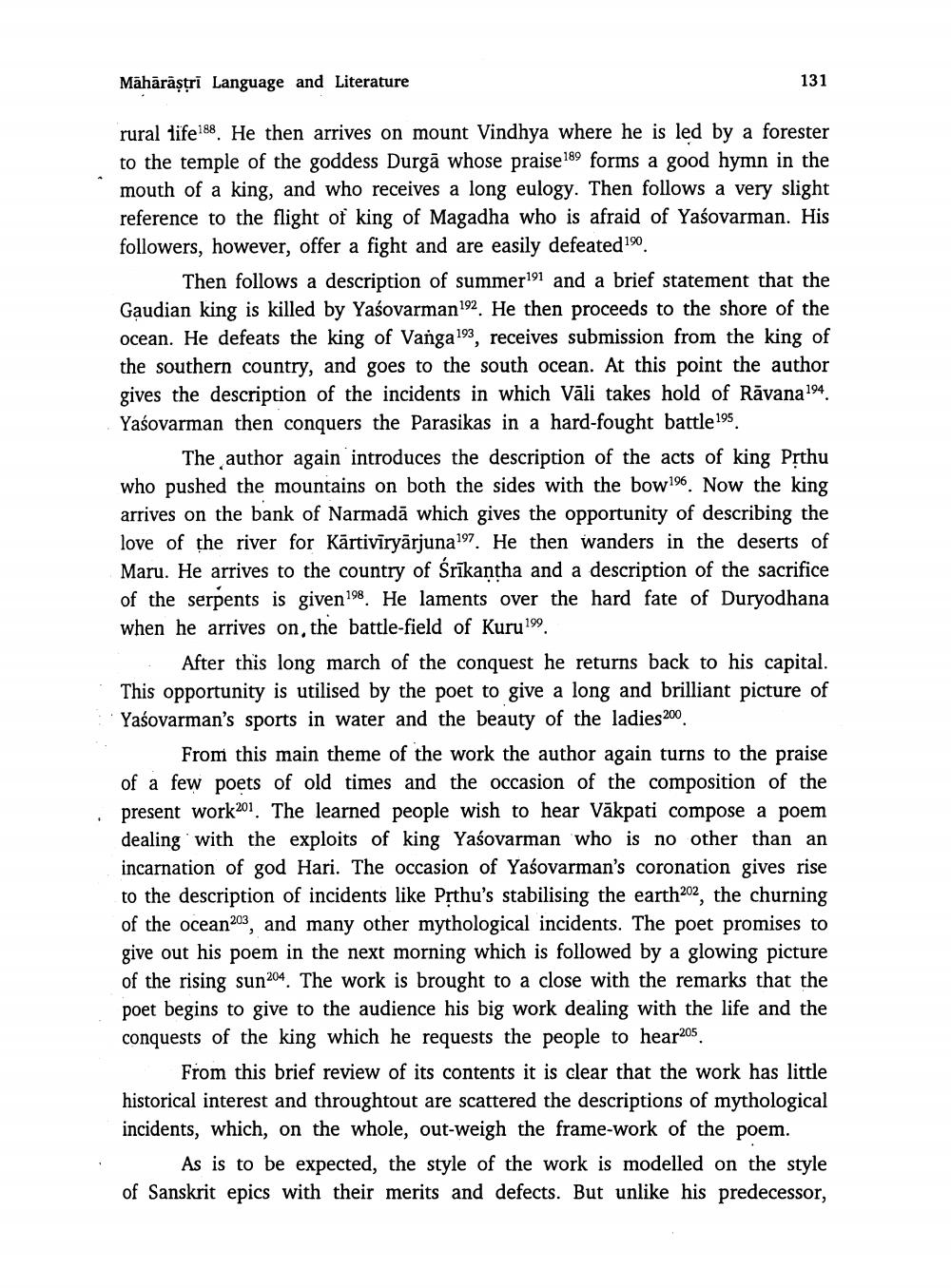________________
Māhārāștri Language and Literature
131
rural life188 He then arrives on mount Vindhya where he is led by a forester to the temple of the goddess Durgā whose praise 189 forms a good hymn in the mouth of a king, and who receives a long eulogy. Then follows a very slight reference to the flight of king of Magadha who is afraid of Yaśovarman. His followers, however, offer a fight and are easily defeated 190
Then follows a description of summer191 and a brief statement that the Gaudian king is killed by Yasovarman192. He then proceeds to the shore of the ocean. He defeats the king of Vanga193, receives submission from the king of the southern country, and goes to the south ocean. At this point the author gives the description of the incidents in which Vāli takes hold of Rāvana194. Yasovarman then conquers the Parasikas in a hard-fought battle 195
The author again introduces the description of the acts of king Prthu who pushed the mountains on both the sides with the bow196. Now the king arrives on the bank of Narmadā which gives the opportunity of describing the love of the river for Kārtivīryārjuna 197. He then wanders in the deserts of Maru. He arrives to the country of Śrīkantha and a description of the sacrifice of the serpents is given 198. He laments over the hard fate of Duryodhana when he arrives on the battle-field of Kuru199.
After this long march of the conquest he returns back to his capital. This opportunity is utilised by the poet to give a long and brilliant picture of Yaśovarman's sports in water and the beauty of the ladies 200
From this main theme of the work the author again turns to the praise of a few poets of old times and the occasion of the composition of the present work201. The learned people wish to hear Vākpati compose a poem dealing with the exploits of king Yaśovarman who is no other than an incarnation of god Hari. The occasion of Yaśovarman's coronation gives rise to the description of incidents like Pịthu's stabilising the earth202, the churning of the ocean203, and many other mythological incidents. The poet promises to give out his poem in the next morning which is followed by a glowing picture of the rising sun204. The work is brought to a close with the remarks that the poet begins to give to the audience his big work dealing with the life and the conquests of the king which he requests the people to hear205.
From this brief review of its contents it is clear that the work has little historical interest and throughtout are scattered the descriptions of mythological incidents, which, on the whole, out-weigh the frame-work of the poem.
As is to be expected, the style of the work is modelled on the style of Sanskrit epics with their merits and defects. But unlike his predecessor,




